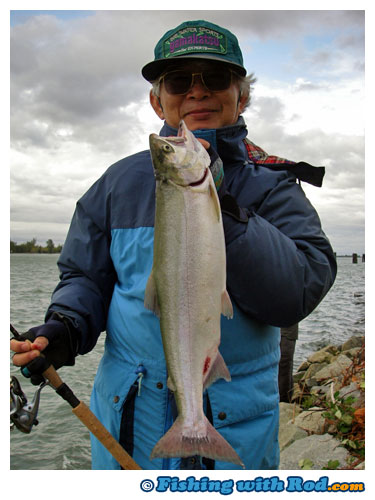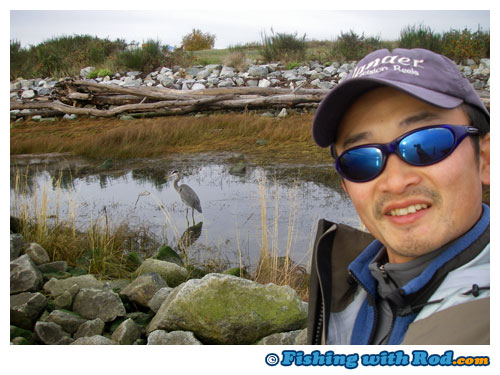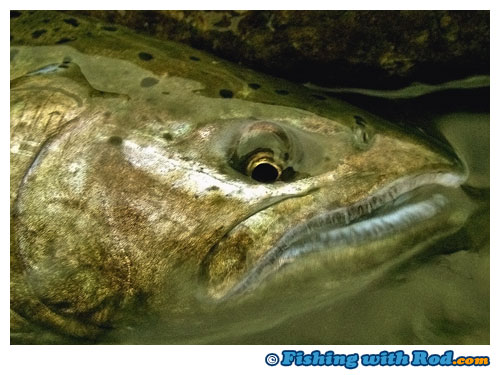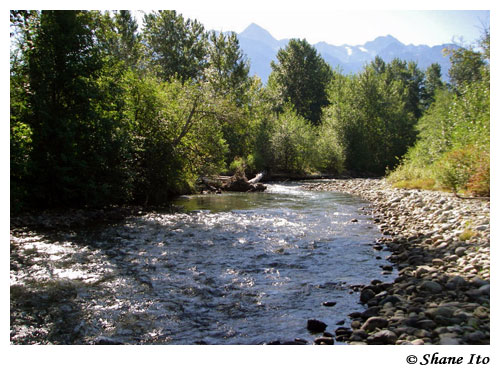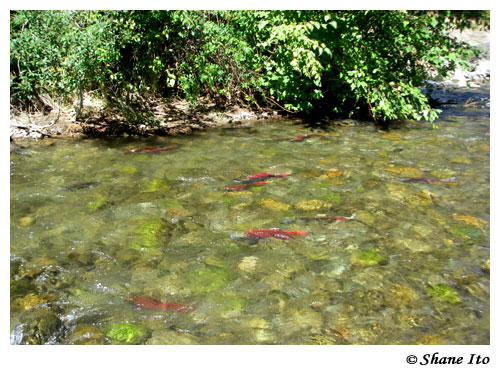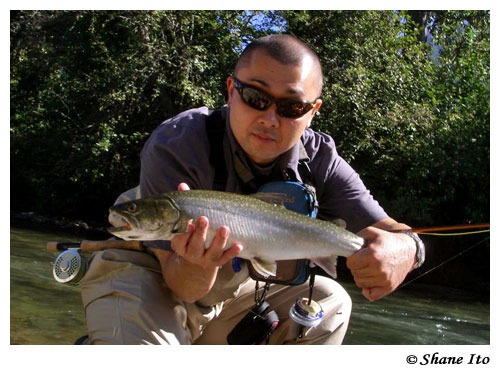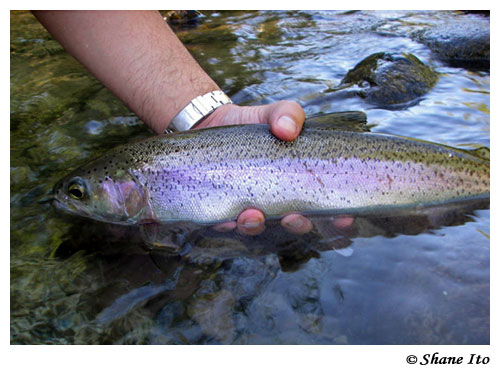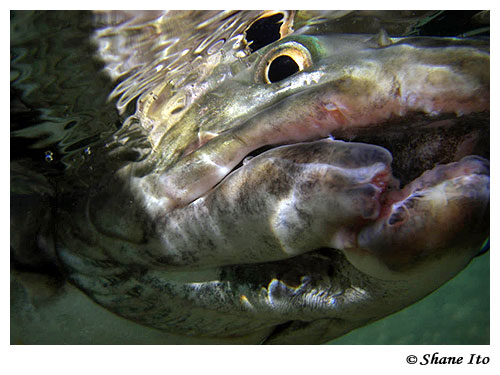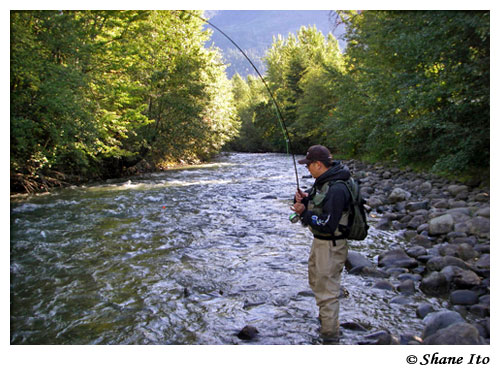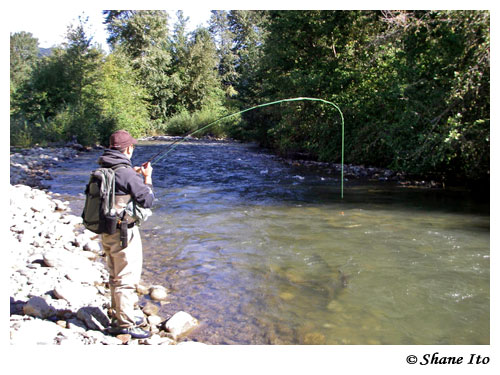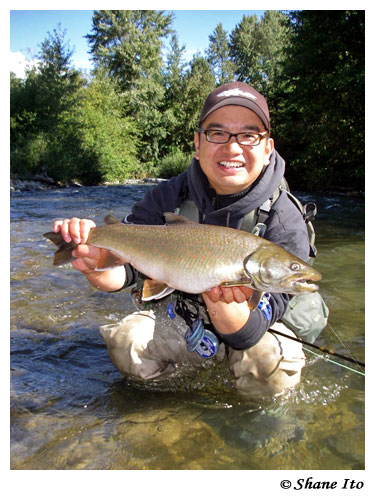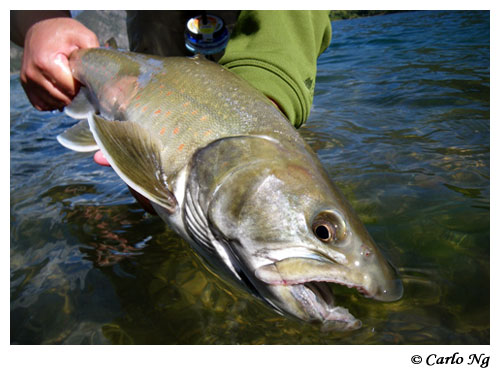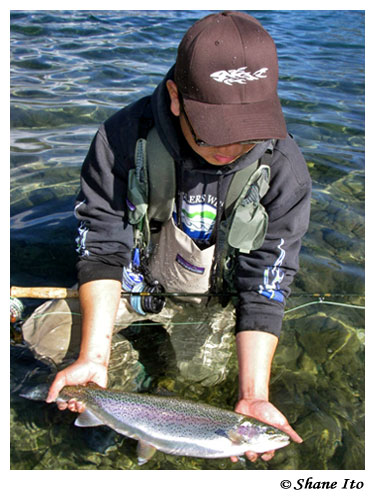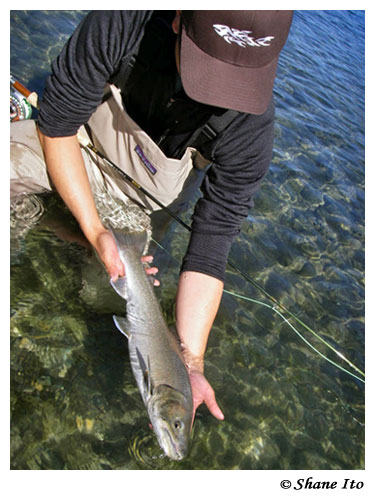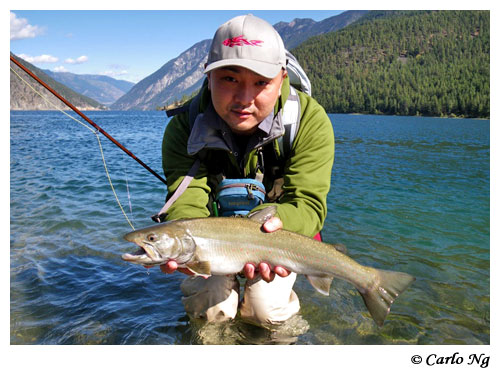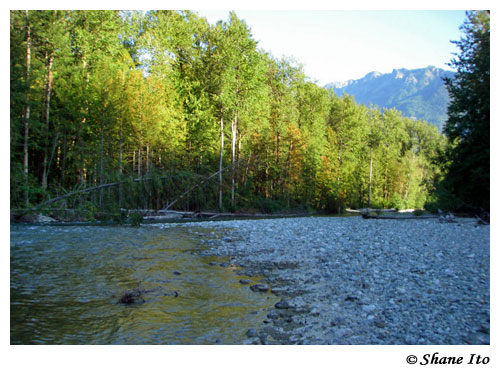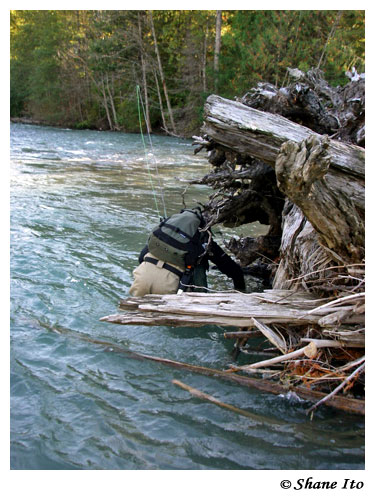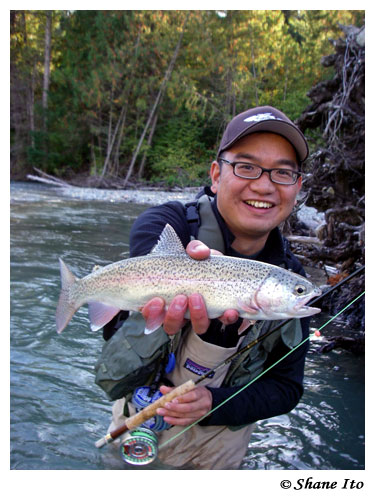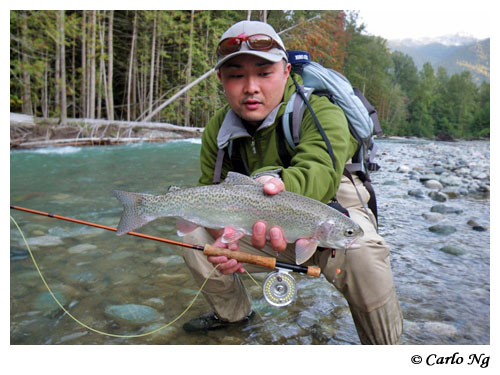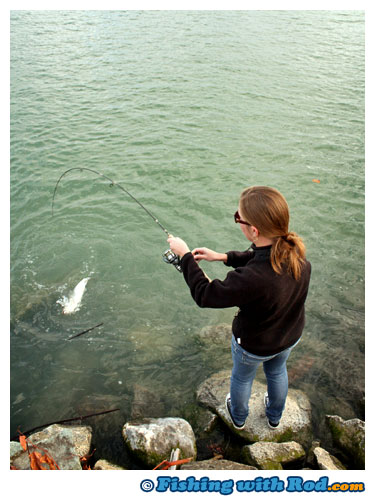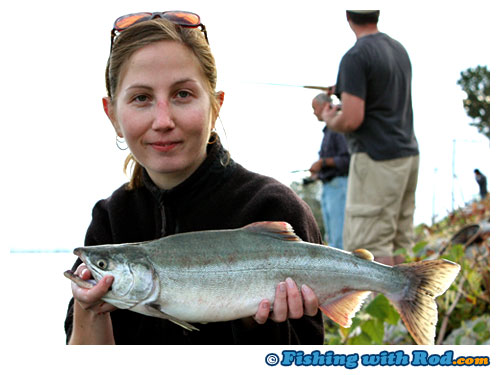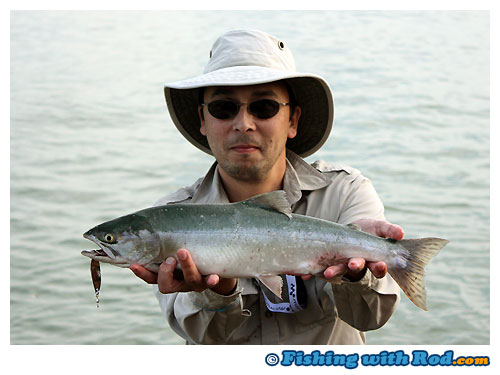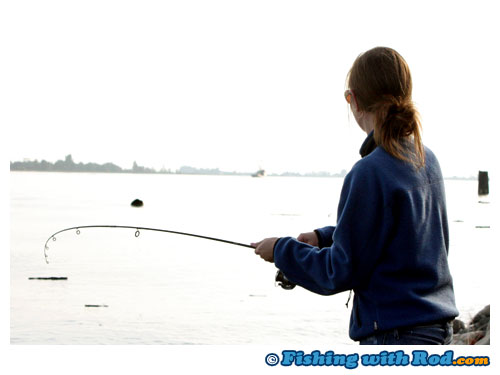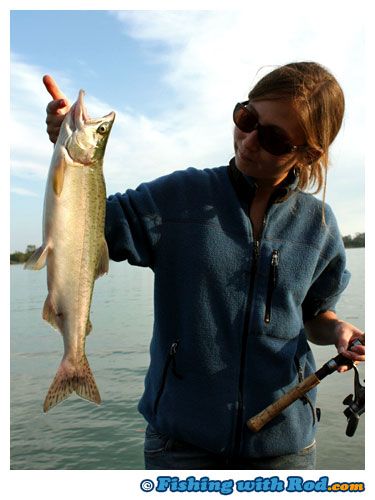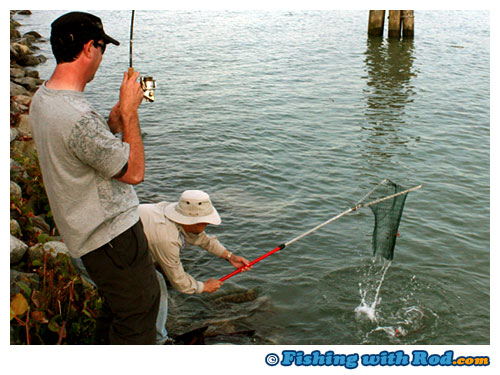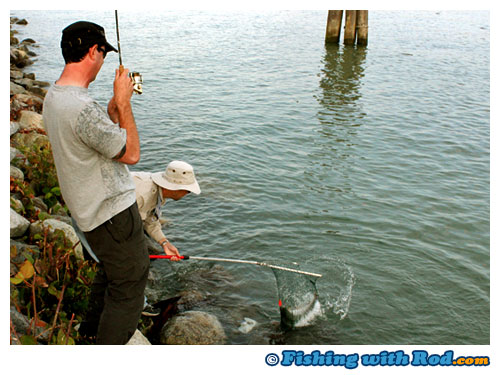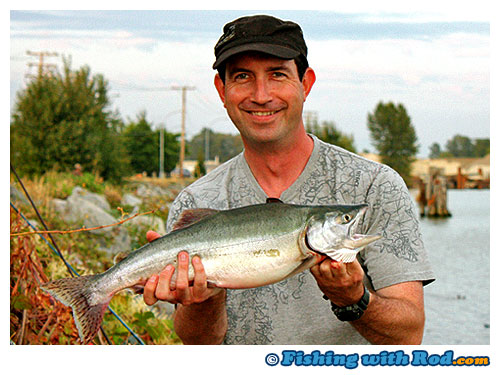Vedder, a love and hate relationship
Published on Tuesday, October 6th, 2009
The Chilliwack River, or more commonly known as the Vedder among anglers, is by far the busiest river fishery in British Columbia. One should not be too surprised, since it is less than 100km from two million Lower Mainland residents. Beginners, who could not care less about what they catch, love it because it usually yields many salmon every trip. Seasoned Vedder anglers enjoy testing their skills with coho and steelhead. We rush to the river before dawn because we love that first light bite, but also have the anxiety of having the trip ruined by others. It is a love and hate relationship that most of us cannot seem to get away from until we finally become too tired of it.
For the most part, my trips to the Vedder have always been very enjoyable. This is due to the fact that IÂ am fortunate enough to have the opportunities to fish with experienced local anglers. Quality also supercedes quantity for my outings so I have a tendency to seek for fishing spots that are void of anglers even if less fish are to be had. If help is requested, I enjoy sharing the tips that have been passed to me. These objectives usually ensure that my trips would end well, but I have always been prepared for the chance of encountering a bad scenario. Today’s trip may just be that day, at least part of it anyway.
After the first scouting trip last week, the coho salmon fishing seems to have picked up. Chris phoned yesterday morning and his first words were, “Why aren’t you fishing? They are rolling everywhere!”
This was not the first time those words were spoken over the phone, but it always got me hyped up on coho fever. I decided that it was time for another visit this morning to see if I could bag a coho salmon or two.
Having his day off, Shane also decided to tag along. Shane spends most of his time targeting trout and char on the fly (see egging for trout in a salmon stream). Occasionally, he visits the Vedder during the fall salmon season but has always been unsuccessful on catching a hatchery marked coho salmon. His failure to connect with one has made him a skeptic on short floating, so it was time to put an end to his skunk streak.
The sleep on the night before was short and restless as usual. The thought of seeing the floatès disappearance and silver flashes always keep the heart pumping hard. The three of us met up at 6:30am at the hot spot. Constant splashes could be heard in the darkness, which only intensified the anticipation. We made our way down the ripraps when it was bright enough to see. The spot that Chris had picked out is a deep sandy tailout that hardly has any current. It is a classic coho spot, but I could also see hundreds of pink salmon holding in the same area. Never have I seen that many pink salmon in the Chilliwack River, which is fantastic as their carcasses will become abundant nutrient for rearing juvenile salmon and steelhead.
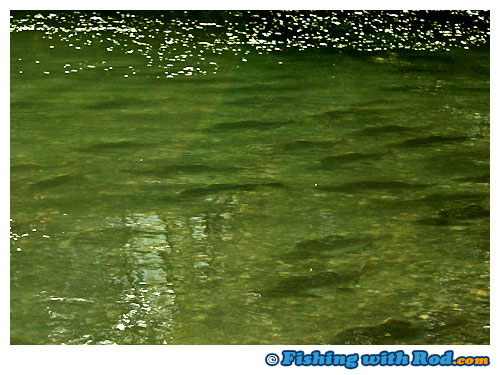
The pink army
Once the floats were visible in the water, we began sending our bait into the run. The bites were immediate. Shane Connected with a fish that leaped several times before it tangled the line up on a log. I was quite certain that it was a coho salmon (aren’t the ones we lose always are?). I soon found a bite too, but it was a feisty pink salmon that did not want to be unhooked by Chris. Judging by how productive it was after five minutes of fishing, we were confident that it would be action-packed for the rest of the morning. Could we be more wrong.
Entertainment started when Chris made his first cast. After greasing his reel the night before, he forgot to tighten the screw so one cast sent the drum of the reel into the water! It sank and lodged itself to some rocks in four feet deep of water. Chris attempted to net it without much success, so the alternative option was to take all the line off until the knot and drag it up.
While this was happening, we noticed the flyfisherman on the other side of the river had connected with a fish. He fought the fish to shore and proceeded to drag it up on dry bank. It is a practice that is acceptable if one intends to keep a legally caught fish, but not exactly the best for the fish if it is to be released.
While watching what had taken place and assuming that he was about to keep his first catch, I made a remark to Shane, “That must be a coho salmon! Good for him!”
“Are you sure?”, Shane replied.
“Ya! Otherwise he wouldn’t be doing that.”, I replied with condifence. After all, flyfishermen are generally more experienced.
As soon as my words were spoken, the angler, if we can actually call him that, kicked the fish in the air as if he was auditioning for “Bend it like Beckham”.
Stunned by seeing what had just taken place, I said, “I guess not…”
Shane shook his head and we were back to watching our floats.
It did not take long before this person foul hooked another fish and once again he dragged the fish up to the dry sand bar and gave the fish an even harder boot as if his day had been ruined by them.
After seeing enough, Chris advised the person loudly across the river, “Hey! Please don’t kick the fish back in the water like that!”
He immediately responded, “I don’t care! They are just pinks, a nuisance. You want to save all the mosquitos too?”
Despite of the rude reply, Chris continued, “You should be treating fish with respect.”
The language only degraded from that point, “I don’t give a ****!”
Seeing that we were dealing with someone who clearly was not going to listen, Chris simply replied, “Ok, but if you get caught by DFO doing that, it is a $250 fine.”
“I don’t give a ****!”
Funny enough, somehow he actually gave a **** after Chris took out his phone and called DFO, which unfortunately was not available. The person restrained himself from kicking more fish back in the water, but still dragged them up to dry land each time before leaving 30 minutes later.
The displayed arrogance boggled my mind. Why one chooses to be so rude is difficult to understand when the whole purpose of being out on the river this early in the morning was to relax, enjoy and appreciate. To treat pink salmon with such disrespect simply because there are millions of them returning is the same attitude that has resulted in the loss of many fisheries.
Not to have the day ruined by one individual, we kept fishing hard but only to be rewarded with some pink salmon. The coho bites that were expected did not really take place at first light.
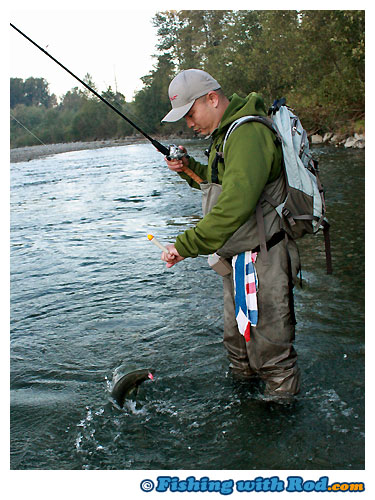
Shane attempts to gain control of another pink prior to its release.
After retrieving his reel, Chris’ morning did not seem to improve. The bites that he had missed sent the entire rig back into the trees behind him sometimes, while other times it simply tangled up the entire rod.
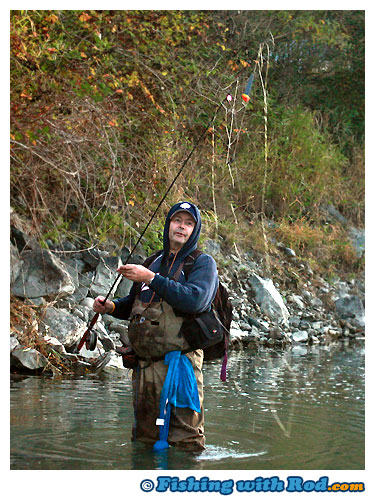
The tangler!
When we thought things were almost organized, the next episode occurred. Without being noticed, an angler had moved to the spot where the previous flyfisherman was across from us. He watched us for a few minutes and decided to suggest that we were standing in where coho would swim past and that he wanted us to get out of the water!
We had difficulty to decide whether we should find his direct request offensive or funny. Even if he was right, which he was not, how an angler who arrives late could actually ask other anglers who have been at a spot to move is simply rude. Nevertheless, we decided that it was worth to have a chuckle over it and continued fishing.
After a couple of hours of entertainment, we finally settled down and fished in peace. At 9:00am, the sun just emerged from the hill top and the bite was finally on! The surface glare made float watching almost impossible and every bite resulted in the float shooting back into our face. The drift in the slow flow meant precise hookset was needed if we wanted to connect with a fish.
After failing many times, Shane rod finally displayed the welcoming bend that we had been waiting for. The rapid kicks indicated that it was most likely a coho salmon. Shane kept the rod high, to avoid the overhanging log that he hung up on earlier. The fish splashed on the surface several times, luckily leaped over the log toward him. It was indeed a coho salmon, a bright one too! I rushed to shore, placed my rod down and looked for a safe place to land the fish. It was not going to be easy along the steep shoreline, a bump and splash could make the fish spit out the hook instantly. Shane guided the fish to the nearby rocks and I made an attempt to grab its tail gently once it reached the shallow end. The first grab was a success! My other hand quickly tucked under the fish’s belly, which allowed me to firmly lift it up. The absence of the adipose fin put a smile on both our faces. Shane’s first ever hatchery coho salmon was finally landed.
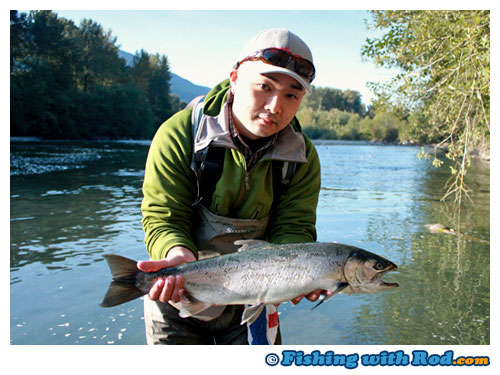
For someone who had just landed his first ever hatchery coho, he sure did not show much excitement.
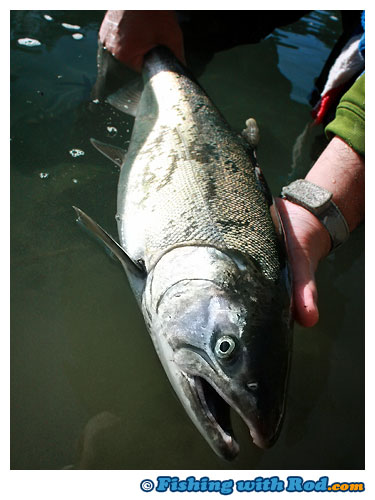
A fresh fall coho salmon, with most of its scales intact.
The bites went on for another 15 or so minutes before it completely died off. During that time, we managed to miss every single bite. Disgusted by the effort and slightly stressed by the number of fishermen that had arrived, we decided that it was time to make a move.
Shane and I decided to visit a spot in the mid section of the river that we are quite familiar with. Even though the sun was shining above us, the bite could always be on if the runs were undisturbed. In the meantime, Chris had left to his dentist appointment and we agreed to meet up for lunch a couple of hours later, unless the fishing was hot for us of course.
We were delighted to find the runs that we wanted to fish void of anglers. The water appeared to be much lower than last week, with ideal clarity that may keep the fish unaware of our presence. I chose to work the head of the run while Shane drifted through the tailout. Within a few casts, Shane was once again into another fish! The deep headshakes suggested that it was a jack chinook salmon, which are abundant in September and October.
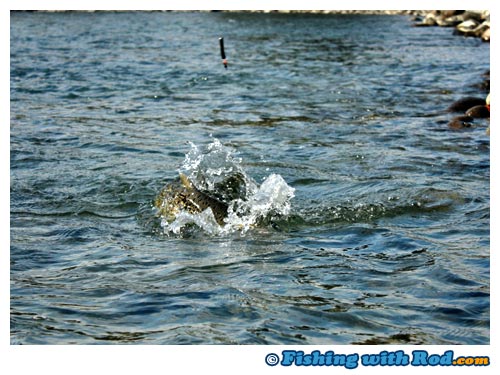
Surface splasher.
It was quite coloured up, like the ones I had caught last week. When salmon are coloured up, especially fall chinook salmon, the best thing to do is to release them back to their spawning ground.
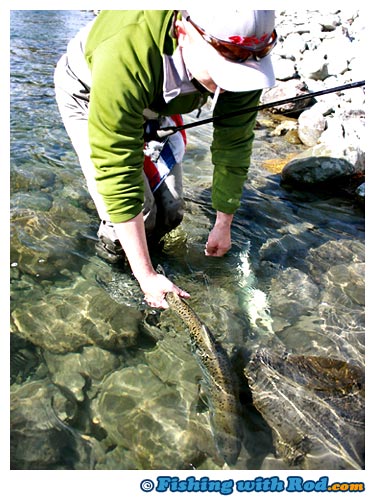
Back it goes!
In the meantime, I was also able to entice a few fish to bite further upstream but I failed to transform each hit into a fight. The quick takes suggested that they might be coho salmon, or at least I could always hope. While this was happening, Shane called me down once again. He had connected with another jack chinook salmon after losing two more fish!
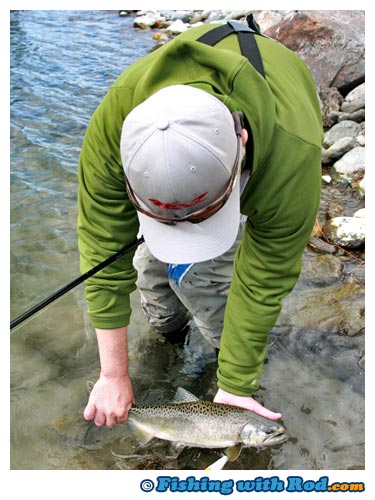
Last fish for the day.
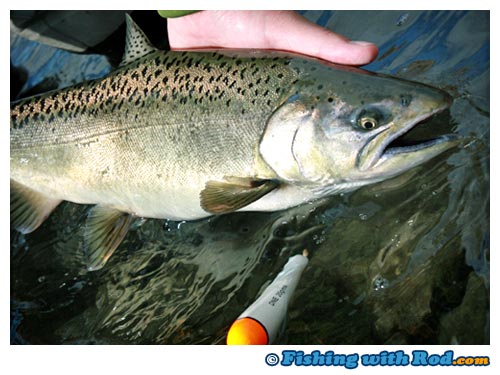
Spotty back.
After two jack chinook salmon, we managed to find a few more bites but failed to connect all but one fish that I had on for a minute. The fish, after burying my float completely, took a long solid run downstream. At first I had assumed that it was a chinook salmon, based on how it was fighting, but my mind changed when it showed its silver, purple tinted body in the air. I managed to guide it back upstream, but the unbearable hook pop happened once its head appeared on the surface. Once again, I had to return home with an empty cooler.
Despite of an eventful start that we could do without this morning, it was yet another enjoyable Vedder outing that I can both love and hate. While it was exciting to see Shane retaining his first hatchery coho salmon, it was disappointing to miss so many opportunities when fish should easily be hooked. The earlier episodes also suggest that the quality of the Vedder recreational fishery still has room for improvement. It certainly would be nice to see more fish in the river, but it would be even nicer to see more educated, respectful anglers.

